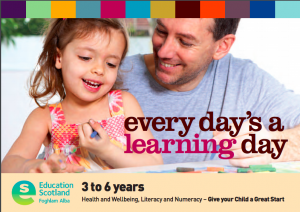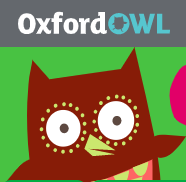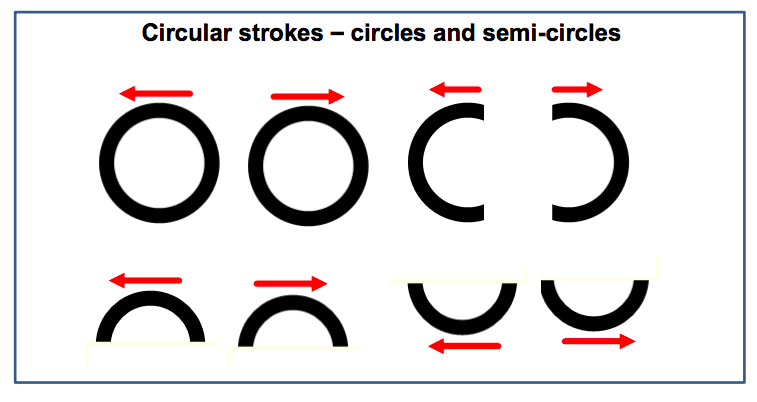Click on the images above to go to that area of mild literacy resources.
The resources and activities on this page are recommended for those children working at early and first level.
The curriculum for these children is planned using the early level and the first level experiences and outcomes.
This resource will hopefully reassure parents that Every Day is a Learning Day.
Listening and talking
Discovering treasure outdoors is a great way to develop listening and talking skills.
Sound recognition
Asking your child to say the sounds in their sound book is a great warm up before a literacy activity.
Print these digraph sounds cards or open the PDF to copy and make your own. Make 2 sets and you could play snap or pairs.
Teach Your Monster To Read
Sign up for a free computer online account.
Oxford Reading Tree
Sign up for a free account to access eBooks from the Oxford Reading Tree series, Biff, Chip and Kipper stories.
Epic
Visit the Epic website to access free digital books.
Reading for Information
DK Find Out! is a great resource to support reading for information.
Tricky Words
Letter formation warm up handwriting patterns to practise different types of lines.
Letter formation families
More to follow!
Class teachers will share new spelling words via SeeSaw on a Monday.
In class the children use a magnetic board and letters when learning to spell. The P1 children received magnetic letters in their Book Bug Pack in November. They were tiny and some might be lost.
To make a set
Glue a piece of A4 paper onto a piece of card e.g. a cereal box
Cut into 26 squares.
Write a letter of the alphabet on each piece
If possible write the vowels with a red pen or pencil
a e i o u
Write out the consonants with a blue pen or pencil
b c d f g h j k l m n p q r s t v w x y z
Glue another piece of paper onto the other side of the cereal box. Copy the alphabet mat below onto this.
OR if you have a printer you can download the pdf above here.
This is fiddly to make but we used magnetic letters and boards with the alphabet sheet often in P1.
The lesson always began with the children matching their plastic letters to the correct place on the board. This reinforces letter recognition and alphabetical order.
When the children learn a new digraph they are given this in green.
A digraph is a combination of 2 sounds which together make a new sound e.g. s and h become sh
These are the digraphs the children have been introduced to (they are glued into their sound book)
the long vowel sounds
ai ee ie oa ue
the other digraphs
ck ng oo or ch sh th
qu oi ou ar er
 Spelling Activities
Spelling Activities
Rainbow Spelling
Softly write your word, with a space between each letter. Then go over your marks again and again with a variety of colours to make some rainbow lettering.
Backwards Spelling
Challenge yourself by writing your words backwards but making sure your letters are still the correct way round.
Pyramid Spelling
- M
- Me
- Met
- Meth
- Methl
- Methli
- Methlic
- Methlick
Scribble Spelling
Draw a large scribble over a blank page that covers most of the page with lots of sections to colour in. Rather than colouring in the sections, fill them with your spelling words in a variety of colours.
Alphabetical Order
With your spelling list put the words in alphabetical order.
Spelling Train
Join all your words together in one long line, then add the wheels underneath.
Vowels and Consonants
In each of your spelling words, think of a way to identify the letters that are consonants and vowels; colour in, circle or underline
Make up your own Secret Code.
Using shapes, symbols or numbers, create your own code to share with family and send messages to each other using your spelling words.
Bubble Lettering
We all enjoy doing some bubble writing or poster lettering but often many of us think we are not good at this … YET. So take the time now to have a go and practise.
Back Massage Lettering
With your family write your spelling words on their back with your finger slowly. You can’t give the next letter until the guess correctly the letter you are drawing on their back.
Cut out Spelling
With an old magazine or newspaper, cut out letters and stick them together to spell out your words.
TV Time Challenge
Most of us don’t like it when the adverts are on TV. Why not make it a challenge. You will have the length of a advert to write down as many words as you can. The more you do it the faster you will be able to write your words.



















